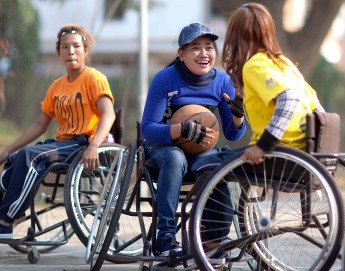
Partnering with your foundation or trust
Founded more than 150 years ago on the initiative of philanthropists, entrepreneurs and humanitarian visionaries, the ICRC has all this time maintained its ability to innovate and to deliver high-impact assistance to men, women and children in fragile situations. Our bases in more than 100 countries and our neutral, impartial and independent approach give us a global reach and the unique ability to carry out our mission in many regions inaccessible to others.
A world of change
In a world of constant change, we have the privilege of working with various actors from the international philanthropic community – be it as a trusted beneficiary of charitable funds or through the sharing of expertise and networks. In this respect, we would be delighted to explore areas of mutual interest and opportunities to work with your philanthropic organization for the greater good of humanity.
Previously people saw only my disability and thought that I was worthless
Los Nimal, a 33-year-old single mother from Cambodia, who became disabled after stepping on a mine. Find out how the ICRC is partnering with the MINE-EX Foundation of the Rotary Club of Switzerland and Liechtenstein to help Los and thousands like her.
ICRC appeal for 2021
The ICRC is appealing for 2.3 billion Swiss francs for its activities in favour of people affected by armed conflict and other situations of violence around the world.
Our largest operations in terms of budget are: Syrian Arab Republic (193.6 million), Yemen (149.4 million), South Sudan (128 million), Iraq (123.8 million),and Nigeria (104.8 million).
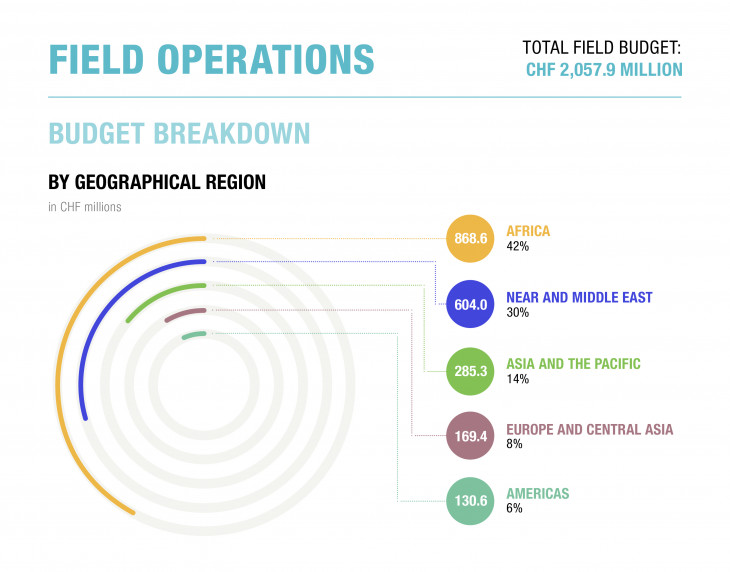
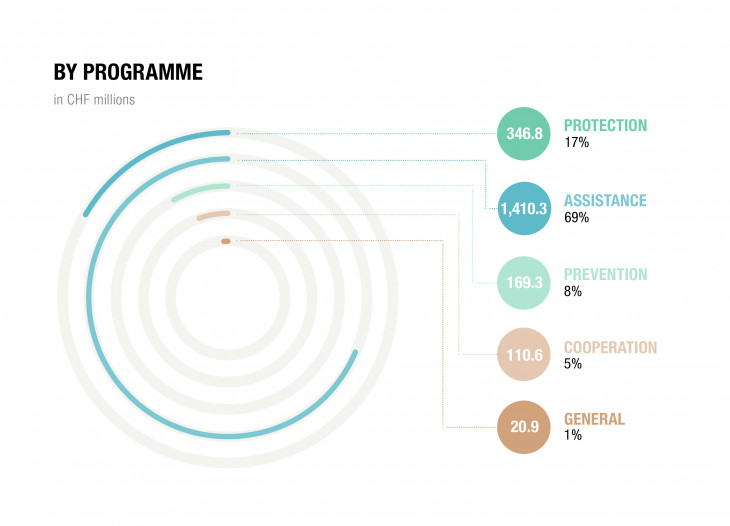
I was 17 and depressed. I stayed at home.
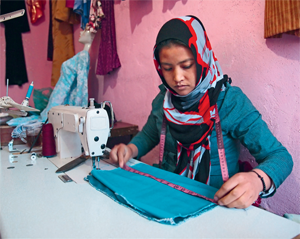
This is how 20-year-old Farzana says she felt after losing her leg to a gunshot wound in Kabul as a teenager. Being fitted with a proper prosthesis at the ICRC's orthopaedic centre in Kabul helped, but she still felt lost, and the future seemed full of uncertainty. Then she learnt that the ICRC was providing support for vocational training in tailoring. After signing up and being trained, she qualified for an ICRC micro-loan programme, through which she received 15,000 afghanis (USD 30). She bought a sewing machine, a desk and some fabric.
Today, Farzana is a successful businesswoman who trains other women starting out in the tailoring trade, and she owns the shop where she works. "I don't pay rent!" she says. "And I support my whole family."
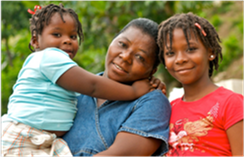
After the 2010 earthquake in Haiti, thousands of families began searching for their loved ones, unsure whether they were dead or alive.
When nine-year-old Saïda was pulled out of the rubble, she was taken to a hospital in the capital Port-au-Prince and then transferred for further treatment in Guadeloupe. Her mother, Salvanie, had no idea that her daughter had left the country.
In her desperation, Salvanie contacted the ICRC for help. Our delegates began checking their lists, comparing them with those of other organizations and exploring all avenues to try and find Saïda. We were finally able to match the information collected from her mother with that of a girl being repatriated from Guadeloupe by the French embassy. As soon as Saïda was back in Haiti she could be reunited with her mother.
"When I got home, my mother cooked for me." said Saïda. "We told each other jokes and I told her how I was feeling." Salvanie organized a party for her daughter's homecoming, relieved and overjoyed to have Saïda safe and sound and back where she belonged, with her family.
Living with a disability
"Previously people saw only my disability and thought that I was worthless," says Los Nimal, a 33-year-old single mother from Cambodia, who became disabled after stepping on a mine. Ms Nimal is one of an estimated 150,000 disabled people in Cambodia, many of them suffering from the deadly conflicts which ravaged the country from 1969 to 1999.
A physical and social rehabilitation programme has provided Ms Nimal with the means to escape her isolation. Today she is a proud member of the wheelchair basketball team and an advocate for the rights of people with disabilities. Ms Nimal has benefited from this rehabilitation programme run by the ICRC with support of the MINE-EX Foundation of the Rotary Club of Switzerland and Liechtenstein. For more than a decade, the programme has helped thousands of disabled people in Cambodia and Afghanistan.
While tenderly embracing her baby, Los Nimal insists,
You have to tell people that being disabled is not an obstacle and that disabled people can do everything that other people can do.
Contact us

- Partnerships Unit
- Tel: +41 22 730 21 71
- Contact



